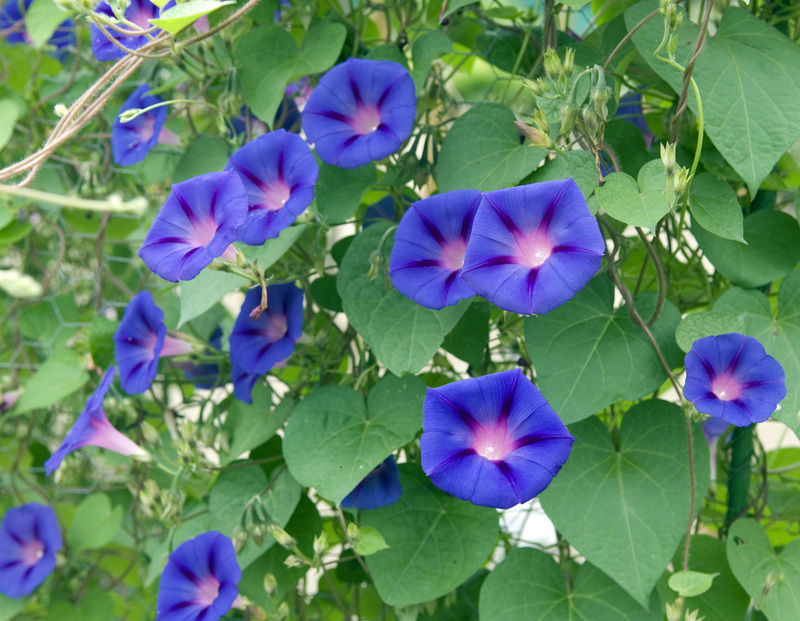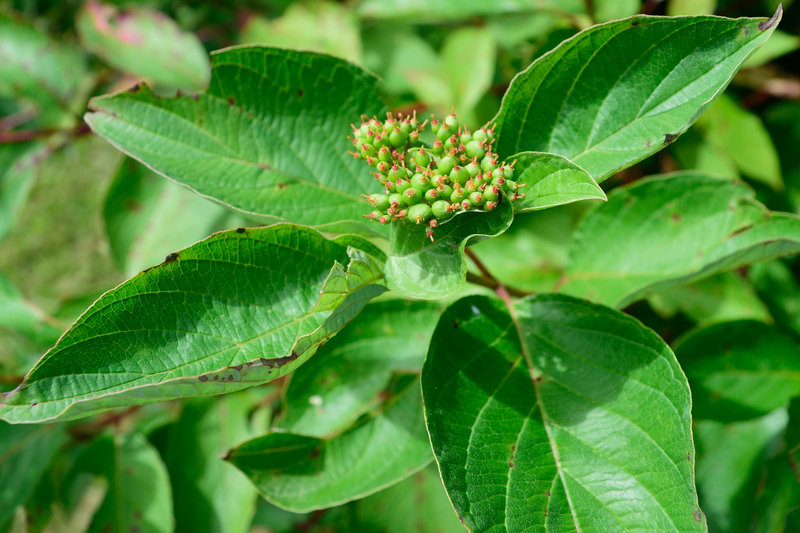From Waste Pile to Garden Delight: Soil Enrichment Unleashed
Posted on 21/09/2025
From Waste Pile to Garden Delight: Soil Enrichment Unleashed
Soil enrichment is the driving force behind thriving, vibrant gardens and productive crops. Yet, many gardeners overlook the powerful transformation that can occur when organic waste is strategically transformed, unleashing garden potential. This comprehensive guide explores how to turn your waste pile into a nutrient-rich foundation, propelling your plants from mediocrity to delight. Get ready to discover practical, eco-friendly strategies for garden soil enrichment, learn about composting dynamics, and harness nature's magic to create a flourishing landscape.
Understanding the Importance of Garden Soil Enrichment
Every successful garden begins with healthy soil. Soil enrichment refers to improving the physical, chemical, and biological properties of your soil to provide optimal growing conditions for plants. Enhanced soil promotes better water retention, improved nutrient availability, and increased microbial activity, leading to robust plant growth and higher yields.
- Increased fertility: Enriched soil contains essential nutrients that plants crave: nitrogen, phosphorus, potassium, and trace minerals.
- Improved structure: Healthy soil boasts the right blend of sand, silt, and clay, allowing plant roots to spread and anchor.
- Pest and disease resistance: Vibrant soil ecosystems help fend off pest invasions and minimize plant diseases.
- Environmental impact: Enriching soil with organic waste reduces landfill contributions and supports a sustainable ecosystem.
Why Transform Waste into Garden Soil Gold?
Many garden enthusiasts toss kitchen scraps, yard clippings, and autumn leaves in the trash, missing a golden opportunity to recycle nutrients back into the earth. By embracing the transformation of waste, you tap into the cycle of life, creating a self-sustaining loop that benefits your garden and the planet. Composting and organic amendments not only feed your soil but also promote biodiversity and reduce your carbon footprint.

The Science Behind Composting
Composting is the cornerstone of turning waste piles into garden riches. It's a natural, biological process where microorganisms break down organic material such as fruit peels, grass clippings, and newspaper into humus--the black gold that unlocks unparalleled soil nutrition.
How Does Composting Work?
- Decomposition: Microorganisms (bacteria, fungi, actinomycetes) feast on organic matter, converting it into simpler compounds.
- Temperature rise: As breakdown occurs, compost piles heat up, destroying weed seeds and pathogens.
- Maturation: The process slows as materials transform into stable humus, ready to unlock vital nutrients in your garden soil.
The balance between "greens" (nitrogen-rich material like food scraps and grass) and "browns" (carbon-rich material such as dried leaves and wood shavings) is crucial. A ratio of about 2:1 browns to greens encourages rapid decomposition and minimizes odor.
Types of Composting: Methods for Every Gardener
The journey from waste to treasured soil booster can take many forms. Whether you have a spacious backyard or a compact city balcony, there's a composting method for you:
Traditional Backyard Composting
- Classic open or closed bin systems allow layers of organic materials to decompose over several months.
- Turn the pile every few weeks to aerate and speed up the process.
- Harvest rich, earthy compost when the materials become dark and crumbly.
Vermicomposting (Worm Composting)
- Utilizes red wiggler worms to break down food waste quickly and efficiently.
- Perfect for small spaces or indoor composting setups.
- Produces nutrient-rich worm castings--an exceptional garden soil supplement.
Bokashi Composting
- An anaerobic process using beneficial microbes to ferment kitchen scraps, including meat and dairy (which are often avoided in standard compost bins).
- Sealed buckets prevent odor and hasten decomposition.
- Bokashi "pre-compost" can be buried directly in garden beds for speedy nutrient cycling.
Sheet Mulching and Lasagna Gardening
- Layering organic materials directly on garden beds--no turning, no waiting.
- Suppresses weeds, retains moisture, and slowly transforms into fertile soil as layers break down.
- Ideal for revitalizing poor, compacted, or unused soil spots.
Waste Materials Perfect for Composting
Not all waste should enter your compost pile, but a remarkable range of everyday discards can provide essential soil enrichment. Here's what you can (and can't!) compost:
Compostable Materials
- Fruit and vegetable scraps
- Coffee grounds and filters
- Tea bags (check for synthetic fibers)
- Eggshells
- Leaves, grass clippings, yard trimmings
- Cardboard, shredded paper, paper towels
- Wood chips and sawdust (in moderation)
- Natural fibers (cotton, wool bits)
Materials to Avoid
- Meat, dairy, and oily foods (unless using bokashi)
- Pet wastes (can contain harmful pathogens)
- Treated wood or glossy paper
- Diseased plant material
- Weeds with mature seeds
Pro Tip: Chop or shred large pieces before composting to speed up decomposition and create finer compost.
How Compost Enhances Your Garden Soil
Applying compost to your garden can unleash a wave of positive changes. Here's how enriched soil brings out the best in every plant:
- Improves soil structure: Compost increases the soil's ability to retain water and nutrients, enhancing plant resilience during dry spells.
- Feeds soil life: Microbes and earthworms thrive, breaking down nutrients for plant use and aerating the soil.
- Boosts nutrient supply: Compost slowly releases nutrients, ensuring sustainable plant uptake over time.
- Reduces erosion: Improved structure resists water and wind erosion, protecting your precious topsoil.
- Balances pH: Compost can help neutralize acidic or alkaline soils, creating a more hospitable environment for most plants.
Compost as a Natural Fertilizer and Soil Amendment
Unlike synthetic fertilizers that provide a quick nutrient hit, composted material feeds both your soil and plants slowly and steadily. It enhances nutrient availability, fosters beneficial microbiology, and improves the overall health and resilience of your garden ecosystem. Make compost the foundation of your organic gardening toolbox!
Practical Tips for Creating Perfect Compost
Starting Your Compost Heap
- Location: Choose a well-drained spot with partial shade to prevent drying out or excess moisture.
- Building layers: Start with a layer of coarse material (twigs or straw) to promote airflow. Alternate "green" and "brown" layers for balance.
- Moisture: Keep your pile as damp as a wrung-out sponge--too dry slows decomposition; too wet creates odor.
- Oxygen: Turn the pile every 2-3 weeks to aerate and encourage fast composting.
- Patience: Depending on the method and conditions, high-quality compost is ready in 2-12 months.
Troubleshooting: Common Composting Issues
- Bad smells? Usually a sign of too much moisture or lack of airflow. Add dry material and turn the pile.
- Not heating up? May need more nitrogen (add grass clippings, food scraps), or pile may be too small.
- Pests? Cover food with browns, don't compost meat or dairy, and use enclosed bins if necessary.
Remember: Even if your compost isn't "perfect," it will still significantly enrich your soil!
Soil Enrichment Beyond Compost: Additional Organic Amendments
While compost is at the heart of soil enrichment, you can further boost your garden's vitality with other natural inputs:
- Manure: Well-rotted animal manure adds nitrogen and organic matter. Always use composted manure to avoid burning plants.
- Leaf mold: Decomposed autumn leaves create a spongy, water-retentive mulch and soil conditioner.
- Green manure: Cover crops like clover or vetch fix nitrogen and add biomass--simply till under at the end of the season.
- Biochar: Charred plant material boosts carbon content and helps lock nutrients in the root zone.
- Rock minerals: Rock phosphate, greensand, or ground basalt provide trace elements missing in depleted soils.
Sustainable Gardening: The Environmental Impact of Composting
By embracing soil enrichment with compost and organic amendments, you're not only nurturing your own plants--you're also making a significant positive impact on the planet:
- Waste reduction: Diverting kitchen and yard waste from landfills slashes methane emissions.
- Soil health: Organic matter rebuilds degraded soils and encourages carbon sequestration.
- Biodiversity: Rich soils nurture a broad spectrum of beneficial insects, microbes, and earthworms.
- Water conservation: Improved soil structure reduces runoff and irrigation needs.
Adopting sustainable soil enrichment creates healthier food, beautiful landscapes, and a cleaner world for future generations.

Frequently Asked Questions about Soil Enrichment and Composting
How Much Compost Should I Add to My Garden Beds?
Generally, spread 1-2 inches of compost on garden beds annually and incorporate into the topsoil. For new beds or depleted soils, up to 4 inches may be beneficial.
Can I Compost Weeds or Diseased Plants?
Avoid composting weeds with mature seeds and do not compost diseased plant material unless you have a hot composting system (pile temperature consistently above 140?F), which can destroy pathogens and seeds.
What If I Don't Have Space for Composting?
Try vermicomposting or bokashi, both of which require little space and minimal odor. You may also find local compost drop-off sites or community gardens willing to accept your organic waste.
Is Store-Bought Compost as Good as Homemade?
Store-bought compost can be useful, but homemade compost offers more control over ingredients and freshness, while reducing your personal waste footprint. Always check sourcing and quality if buying in bulk.
Conclusion: Cultivate Joy from "Waste" with Soil Enrichment
Transforming organic waste into nutrient-rich hummus is a rewarding journey for every gardener committed to sustainability. From backyard compost bins and worm farms to sheet mulching and bokashi buckets, there's an accessible solution for everyone. By continually adding organic matter and focusing on soil enrichment, you're building a vibrant, thriving ecosystem that supports not only plant growth, but also the larger web of life.
Soil enrichment unleashed is the essence of garden transformation--taking what would otherwise be thrown away and turning it into a continuous source of life, abundance, and joy. Start small, remain curious, and harness the creative power of composting to achieve a greener, healthier garden and planet.
Ready to unleash your soil's true potential?
Embrace the full cycle--from waste pile to garden delight! Your plants, your table, and the Earth will all thank you.
Latest Posts
From Waste Pile to Garden Delight: Soil Enrichment Unleashed
Mastering the Art of Weatherproofing Your Garden Space
Container Gardening: Cultivating Creativity

